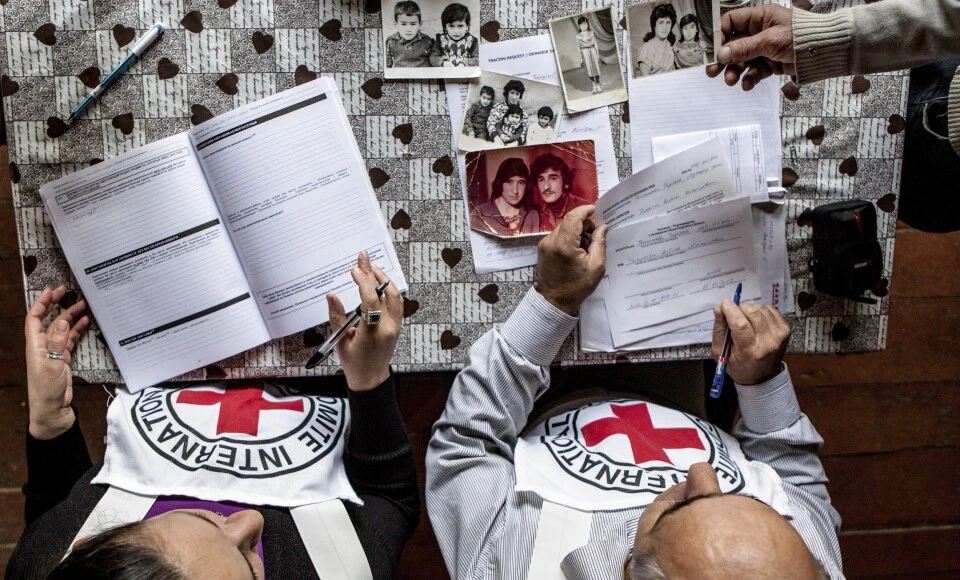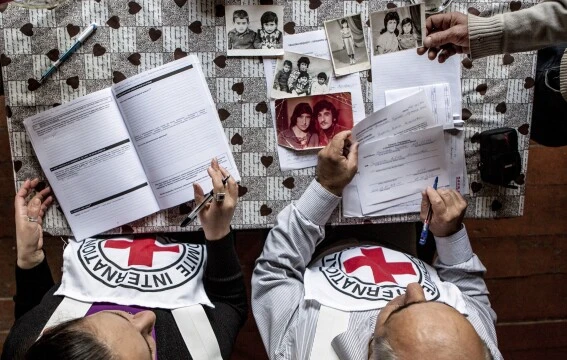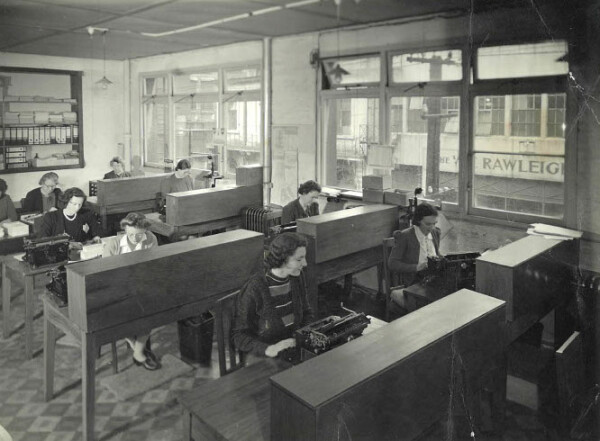Restoring Family Links – tracing people across the world and through the years
5 May 2025


Since 1915, we’ve played a vital role in both local communities and international humanitarian efforts. An area where our local and international work connects is tracing missing people, a service we’ve provided since the First World War and continue today with Restoring Family Links.
Our beginnings
During the First World War, we had volunteers working with the International Committee of the Red Cross (ICRC) as ‘Red Cross searchers’. They helped to reconnect family members who’d lost contact with each other – the precursor to what we know now as Restoring Family Links.
The New Zealand outpost was located at the Red Cross depot in Ōtautahi | Christchurch. The team received over 4,000 inquiries, which they forwarded to contacts overseas as well as the Department of Defence, soldiers’ clubs, RNZRSA, and military camps. They also published lists of prisoners of war and organised care parcels which were delivered by the Swiss Red Cross Prisoners of War Bureau.
Our first international reunification – Galina Bogatiroff

Galina with her parents and Mr J Rumpkin, her companion on the final leg of her voyage.
In 1918, Galina Bogatiroff’s parents fled Russia during the Bolshevik Revolution. Because Galina was unwell at the time, they made the agonizing decision to leave her, as an infant, in the care of others in what became the Soviet Union.
Once they settled in New Zealand, Galina’s parents received letters about her until they suddenly stopped. They had no idea what happened to their daughter, but never gave up hope that they would see her again. They put money aside each week to pay for her passage to New Zealand.
In 1928, Malcolm Galloway OBE, MC — our Secretary General at the time — spoke to former service personnel who were patients in Wellington about the international work of Red Cross. A neighbour of the Bogatiroffs was there and told him their story. Malcolm then forwarded information about Galina to the Central Tracing Agency in Geneva.
Red Cross Societies across Europe, the Pacific, and Aisa searched for Galina for more than three years before the Soviet Red Cross traced her to Strolensk, Siberia. Money was raised to cover her 13,000km journey to New Zealand, and Red Cross volunteers supported Galina every step of the way. She arrived in New Zealand in January 1934 where she was reunited with her parents in Foxton | Te Awahou.
Connecting prisoners of war

The New Zealand prisoner of war tracing office.
At the start of the Second World War, both the British and German governments agreed to treat each other’s prisoners of war according to the rules laid out in the1929 Geneva Conventions. This allowed ICRC to send delegates into prisoner of war camps, provide supplies, and exchange information about interned people.
Around 9,000 New Zealanders were captured between 1939 and 1945. Our prisoner of war enquiry office received thousands of enquiries from whānau about the whereabouts of their loved ones. We and other National Societies were notified about the capture and internment of service personnel through the Joint Council. Also known as the Joint War Organisation, the Council was operated by the British Red Cross and the Order of St John and centralised information about prisoners of war. Along with the council, we notified whānau about where their loved ones were being held and arranged care parcels for them.
Relatives of prisoners of war were able to harness their grief and stress into their work as tracing officers. Volunteers raised funds so that Kiwi prisoners of war could receive care parcels which were packed by New Zealand Red Cross volunteers. Basic food items were included in food parcels – chocolate, condensed milk, tinned meat, jam, butter, sugar, tea, and anything else that could fit. To prisoners of war however — some of whom were held for years — these items were anything but basic. We also sent next of kin parcels to prisoners which had hand-knitted clothes, books, combs, and letters from home.
Warrant Officer R Thompson spent four years in 13 different prisoner of war camps. He said of the care packages, “it was our link with civilisation, so we didn’t just sit down and give up.”
Post-war years and domestic services
After the Second World War, international conflicts continued to cause people to flee. Red Cross volunteers worked with groups like the Inter-church Commission on Immigration, as well as new arrivals at the Mangere orientation centre in Auckland.
This included connecting people with our international tracing service to reunite families separated by war or disaster. We regularly sent information provided by former refugees in New Zealand to the Central Tracing Agency in Geneva.
Our work today

Argentinian Juan Carlos, who along with his brother Jorge, reconnected with his cousin Norma Rosales-Anderson, a New Zealand resident, through Restoring Family Links in 2023
We receive more than 100 enquiries a year through our Restoring Family Links service to help people find missing family overseas. Through our free, confidential service we aim to help families who’ve been separated by conflict, disaster, or migration. We support people of all ethnicities, faiths, and genders. We also provide interpreters at no cost for people to engage with us as part of tracing requests.
Like the volunteers of our prisoner of war tracing offices during the World Wars, people who’ve worked in our Restoring Family Links team over time have often seen first-hand the impacts of missing people. For some, they’ve seen it in their work overseas. For others, their own family members disappeared involuntarily in their home countries.
In an increasingly complex and polarized world, our shared commitment to humanity is more than a guiding principle – it’s a lifeline. Upholding humanity isn’t just a goal, it’s crucial, ensuring that even in the darkest moments, we remain on the side of humanity and stand firm in safeguarding the humanitarian space.
Header image: ICRC workers collecting tracing forms.
More information
- Find out more about our Restoring Family Links service, including how to submit a tracing request.
Find missing family overseas - If you want to get involved in our work, join us! We have volunteer roles to suit everyone.
Find a volunteer role - Donate to support our work, including responding to emergencies, helping former refugees resettle, and delivering meals to people who can’t cook for themselves.
Donate to where the need is greatest
This story was made possible thanks to the work of New Zealand and Australian historians:
- ‘Across the Street, Across the World: A History of the Red Cross in New Zealand 1915 – 2015’ by Margaret Tennant.
- ‘Galina Bogatiroff Little Russian Wanderer On Way To Reunion With Parents’, Sydney Morning Herald, Friday 12 January 1934
Accessed via Trove, National Library of Australia. - ‘Lost in Russia Girl Found After Being Left Behind in Revolution’, The Horsham Times, Friday 19 January 1934
Accessed via Trove, National Library of Australia. - Russian Family Reunited, Timaru Herald, 23 January 1934
Accessed via Papers Past, National Library of New Zealand.
